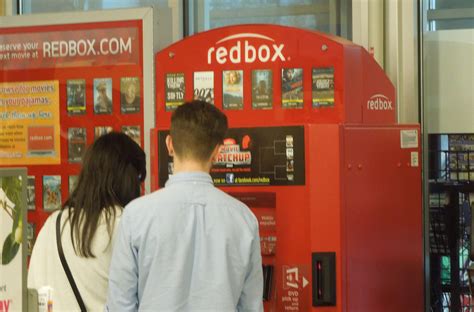The announcement of *Chicken Soup for the Soul Entertainment* filing for Chapter 11 bankruptcy took many by surprise, especially considering this company’s storied past. Known initially for its **inspirational novels** and low-cost stories, the gradual diversification into media, including acquiring Redbox, wasn’t something the average consumer might have seen coming. This dramatic shift raises significant questions about how traditional brands adapt, or fail to adapt, in an era dominated by *streaming* and *digital media* consumption.
Many, like **kylehotchkiss**, are perplexed at the connection between a self-help book series and a DVD rental machine. The transition from motivational literature to owning Redbox, which once offered a convenient alternative to Blockbuster, illustrates a broader corporate strategy to expand into different revenue streams. However, as **benzible** suggests, the strategy might have been less about market synergy and more about financial maneuvers typical in ‘media rollups’, possibly leading to an unsustainable business model.
While some Redbox kiosks maintain steady users, insights from commenters vividly illustrate the changing landscape. For example, **hash872** observes that Redbox remains popular in rural areas where reliable, high-speed internet is scarce. Users in these locales still depend on physical DVD rentals due to either unaffordable or unattainable broadband. The point, however, highlights a niche market—a market that might not have been sustainable financially for a public company with quick debt accumulation.
The irony of the digital age cannot be overstated. As **soft talker** notes, public libraries, many of which lend DVDs for free, continue to outcompete Redbox in specific locales. Libraries, subsidized by local taxes, offer a compelling and cost-free alternative for the very demographic Redbox aims to serve. This is compounded by an ever-evolving streaming industry often leaving less agile businesses behind.
Furthermore, as **bitwize** points out, the Chicken Soup brand’s expansion into sectors like pet food adds another layer of complexity. This diversification, while attempting to turn a profit, might dilute the brand and steer focus away from its core mission. What began as a heartwarming motivational brand veered into territories perhaps too disparate and misaligned to maintain a cohesive business strategy.
The Redbox model still carries a touch of nostalgia. For *millennials* and *boomers* alike, it recalls a time of physical DVD rentals and the simplicity of in-person entertainment options. **Solar_FIELDS** and **brookst** noted that Redbox’s appeal remains partly due to this nostalgia and the memory of a pre-streaming era when physical media was king. Nonetheless, even these loyalists acknowledge the impracticality of the service in today’s world, where every movie is potentially a click away.
In conclusion, the Chapter 11 filing of *Chicken Soup for the Soul Entertainment* serves as a cautionary tale about rapid diversification and the challenges of adapting traditional business models to modern-day digital demands. The story of Redbox is a sobering reminder that technology and consumer behaviors continuously shift, and businesses must either evolve sustainably or risk obsolescence. Companies facing similar crossroads can learn valuable lessons about the balance between innovation and overextension, ensuring that the core of their brand remains clear and strong through dynamic market changes.


Leave a Reply